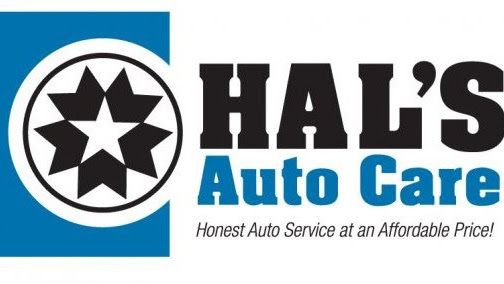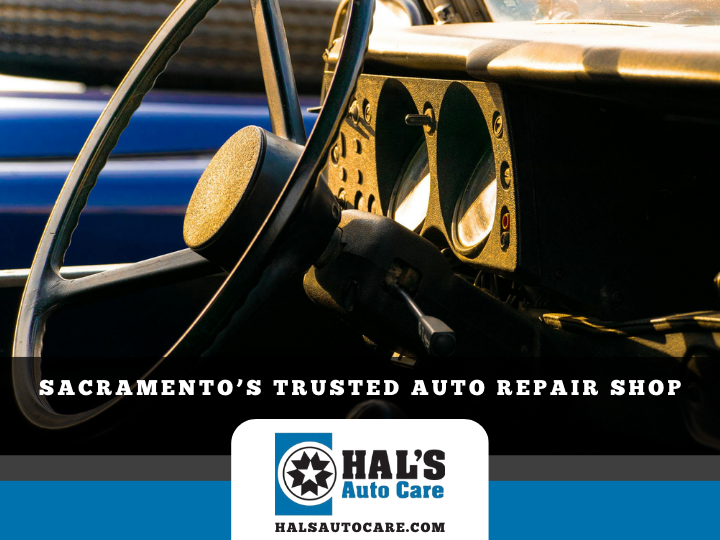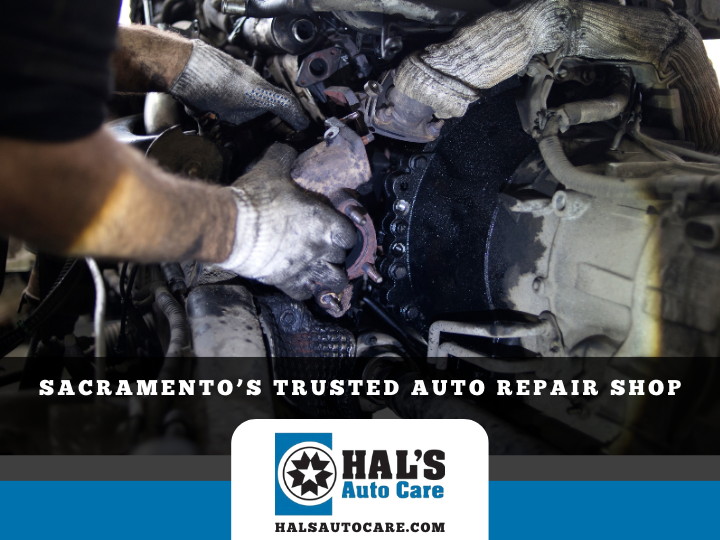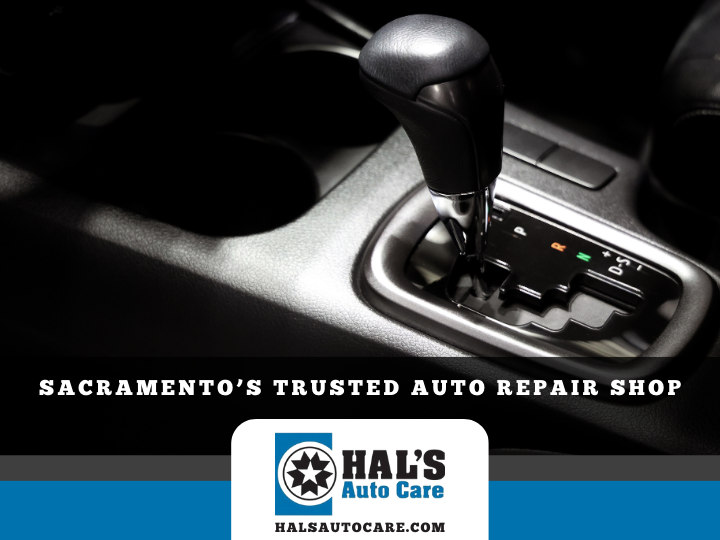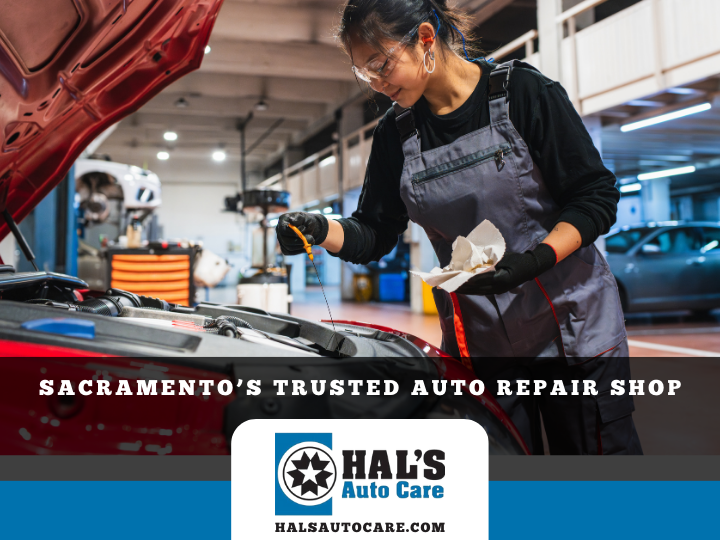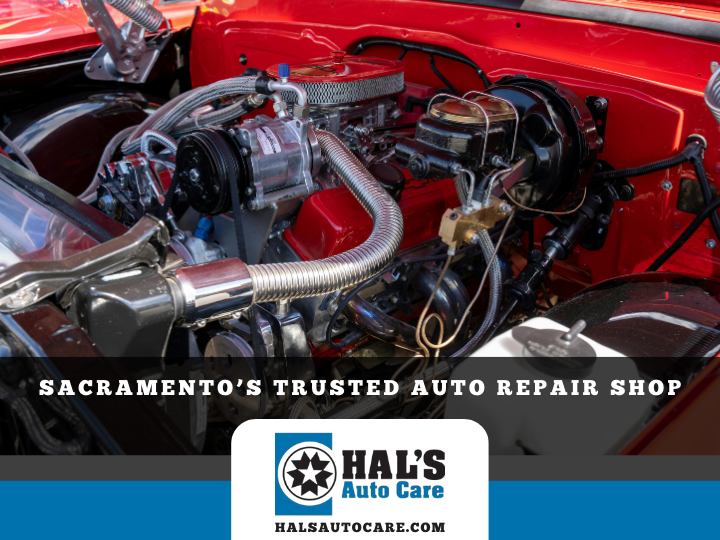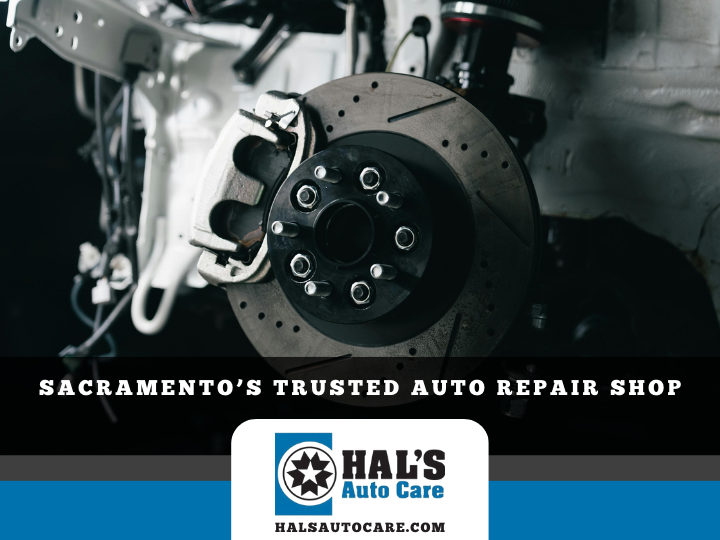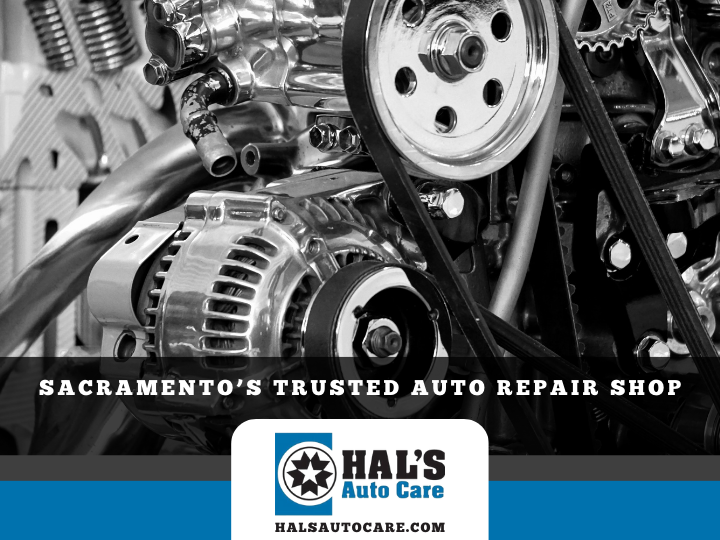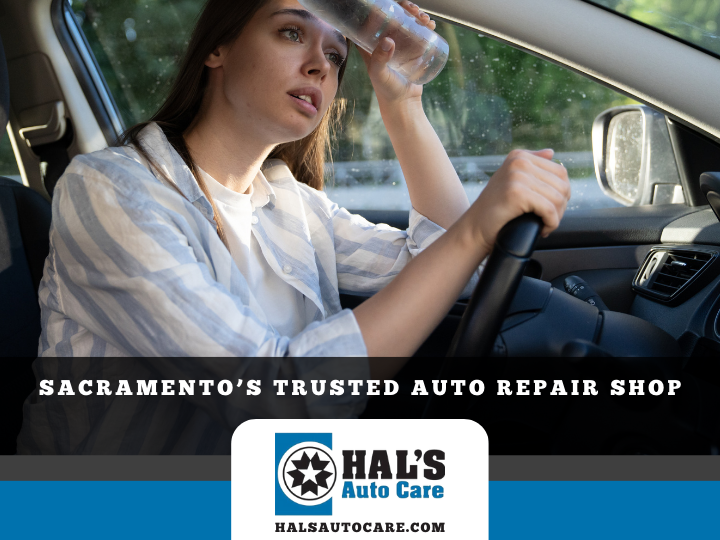Why Is My Vehicle Burning Oil?
Why Is My Vehicle Burning Oil?
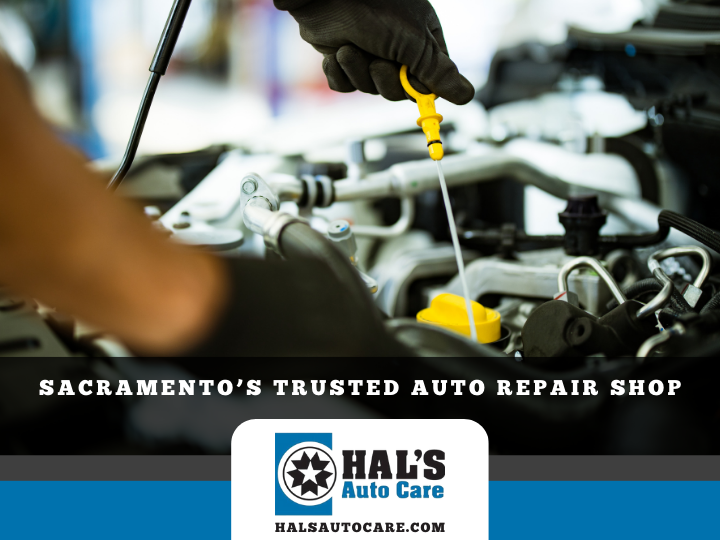
Why Is My Car Burning Oil? Sacramento’s Trusted Solution from Hal’s Auto Care
Have you found yourself adding a quart of oil between oil changes? Noticing a blue haze from your exhaust? Smelling something burning when your engine warms up?
If so, your vehicle may be burning oil—and that’s not something to ignore.
At Hal’s Auto Care in Sacramento, we help drivers uncover the real reasons behind oil consumption, explain what it means for your engine, and fix the problem before it leads to costly repairs or long-term damage.
What Does It Mean When Your Car Is Burning Oil?
Burning oil refers to engine oil entering the combustion chamber, where it burns alongside your fuel and air mixture. While your engine is designed to burn fuel, it’s not designed to burn oil—and when it does, that’s a sign something’s gone wrong.
Oil should stay in the crankcase, lubricating moving parts and keeping your engine cool. But if worn seals or rings allow it into the combustion process, you’ll start seeing symptoms that only get worse over time.
Common Symptoms of Burning Oil
If your vehicle is burning oil, you might notice:
- Low oil levels between oil changes
- Blue smoke from the exhaust, especially during startup or acceleration
- Burning oil smell, especially with the heater on or at idle
- Oil-fouled spark plugs
- Decreased engine performance or fuel economy
- Check engine light or oil pressure warning
At Hal’s Auto Care, we take these signs seriously—because burning oil isn’t just inconvenient, it’s a warning signal that your engine is wearing down internally.
What Causes a Car to Burn Oil?
There are a few common reasons we see vehicles burning oil here in Sacramento:
1. Worn or Stuck Piston Rings
Piston rings seal the combustion chamber. When they wear down or get stuck due to heat or sludge, oil leaks past and gets burned along with fuel.
2. Worn Valve Seals
These rubber seals prevent oil from entering the cylinder head. Over time, they dry out, crack, and leak oil into the combustion chamber—especially on older or high-mileage engines.
3. PCV System Failure
The Positive Crankcase Ventilation (PCV) valve helps regulate internal engine pressure. When it fails, it can force oil into places it shouldn’t be—like the intake manifold—leading to oil burn-off.
4. Cylinder Wall Wear or Scoring
Excessive mileage, poor maintenance, or running the engine low on oil can lead to cylinder wall damage. This weakens the seal and allows oil to bypass the rings.
5. Turbocharger Seal Leaks (If Equipped)
Turbocharged engines have additional oil seals that can fail, letting oil enter the intake or exhaust side of the turbo system.
Is It Burning or Leaking? Know the Difference
Both burning and leaking oil lead to low oil levels—but the symptoms and causes are very different.
- Oil Leaks are external—you’ll often see oil on the ground, your undercarriage, or dripping from seals and gaskets.
- Oil Burning is internal—it happens inside the engine, and you won’t see oil spots, but your oil level still drops.
At Hal’s Auto Care, our trained technicians run a full inspection to distinguish between internal consumption and external leaks before recommending a fix.
How Hal’s Auto Care Diagnoses Oil Consumption Issues
We use a comprehensive, step-by-step process to pinpoint the problem:
- Visual inspection for external leaks
- Oil consumption tracking over time
- Compression and leak-down testing to assess ring and valve sealing
- Spark plug inspection for oil fouling
- PCV system testing
- Borescope camera inspection of cylinder walls and piston crowns
- TSB (Technical Service Bulletin) checks to see if your vehicle has a known oil consumption issue
We combine mechanical expertise with data-driven diagnostics to deliver real answers—not guesswork.
Is It Dangerous to Drive a Car That Burns Oil?
In a word: yes.
Even if the vehicle still runs, burning oil can lead to:
- Catalytic converter failure
- Spark plug damage
- Increased emissions
- Sludge buildup
- Complete engine failure if oil levels drop too far
Running low on oil even once can lead to catastrophic engine damage. The cost of proactive repair is always less than the cost of a new engine.
How Do You Fix a Car That’s Burning Oil?
Depending on what we find during diagnostics, solutions may include:
- Replacing the PCV valve – often a fast and low-cost fix
- Replacing valve seals – moderate labor, good long-term solution for top-end issues
- Piston ring replacement – more intensive, typically involves a full rebuild or engine swap
- Switching to high-mileage oil – can slow consumption for vehicles with light wear
- Engine replacement – in advanced or neglected cases
At Hal’s Auto Care, we present every viable option—clearly explaining cost, benefits, and long-term impact. Whether your goal is to extend your vehicle’s life or plan for a future replacement, we’ll help you make the smartest decision.
Preventing Oil Burning in the Future
Want to avoid oil consumption problems? Here’s what we recommend:
- Change your oil on time, every time
- Use the correct oil grade and formulation
- Have your vehicle inspected regularly
- Check your oil level monthly
- Address engine warning lights immediately
- Avoid overheating and engine abuse
Routine maintenance is your best defense against oil-related engine wear.
Why Sacramento Drivers Trust Hal’s Auto Care
At Hal’s Auto Care, we’ve been helping Sacramento drivers get real answers and long-term solutions for over [insert years in business if known]. We’re known for:
- Transparent service
- Certified diagnostics
- No-pressure consultations
- Accurate, lasting repairs
When your engine is consuming oil, you don’t just need a mechanic—you need a trusted partner who will explain the issue, present honest options, and deliver the repair right the first time.
Schedule Your Oil Consumption Diagnosis Today
If your vehicle is burning oil or just doesn't feel right, don’t wait. The earlier you catch it, the easier it is to fix.
📍
Visit us at: 2425 Tower Ave, Sacramento, CA 95825
📞
Call now: (916) 485-9215
🌐
Book your appointment online: https://halsautocare.com/services/
Hal’s Auto Care – Trusted Engine Experts Serving Sacramento Since Day One
For more information please watch the video


